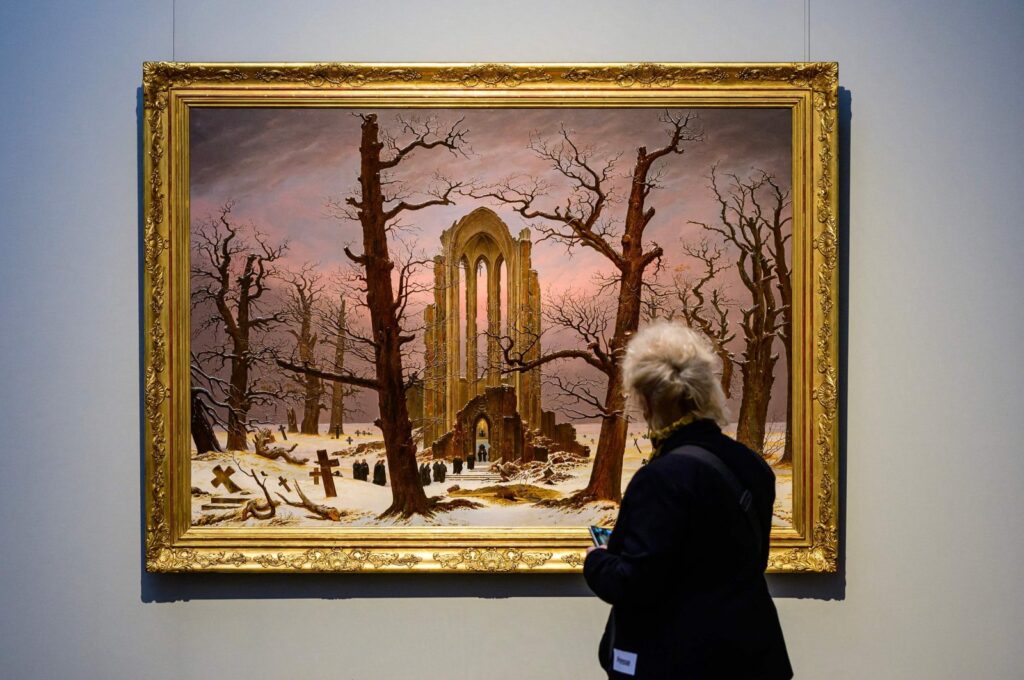
Mehmet Hasan Bulut
From Egypt to the Ottoman Empire to Europe, from assassinations to revolutions, Jamal al-Din al-Afghani’s life spanned several countries in his mission to reform Islam and destroy its historical roots with his masonic lodges
Italian freemason Giuseppe Mazzini, a member of the Carbonari – an informal network of secret revolutionary societies – formed a political union called Giovane Italia (Young Italy) in the 19th century to create a national republic.
This revolutionary organization born in Italy begot the likes of Young Germany, Young Poland, Young France, Young Ireland, Young Serbs, Young Arabs, Young Ottomans (Young Turks), Young Egypt and more in different countries.
Iranian Revolutionary
Jamal al-Din al-Afghani, a notable member of Young Egypt, lived in the Jewish neighborhood of Cairo. He was born in Iran. His family was Babi, a religion founded by Sayyed Ali Muḥammad Shirazi with roots in Shiism.
Al-Afghani studied in Karbala – in modern day Iraq – and traveled to Afghanistan and India, where he worked as a spy for Russia. He introduced himself as an Istanbulite, eventually ending up there, where he gave lectures at Istanbul University thanks to Hasan Tahsini, or Hoca Tahsin Efendi, a member of the Young Ottomans.
However, the masonic messages he included in his lectures disturbed Muslims. Finally, he was expelled from the city when he said that prophethood was an art that could be learned through studying, just like philosophy.
After leaving Istanbul, al-Afghani came to Egypt in 1871. He taught philosophy at Al-Azhar University. But here, too, he was accused of being irreligious and had to leave the university. He continued his lessons in his own home. The most famous of his students was Muhammad Abduh.
Al-Afghani, who entered many Masonic lodges in Cairo, also became the leader of a lodge called the Star of the East, which was under the United Grand Lodge of England. The members of the lodge included the likes of Tewfik Pasha, son of Isma’il Pasha who was the Khedive (Viceroy) of Egypt, and Abduh. Al-Afghani’s friends were all freemasons. The most famous of these was Yaqub Sanu. Sanu, an Italian Jew, met the Carbonari in Italy and came to Egypt to spread Mazzini’s ideas.

Young Egypt
Young Egypt openly took a front against Khedive Isma’il. They formed a secret society of low-ranking fellah (peasant) officers of the Egyptian army. They sought an Egyptian Napoleon to lead the society and they found the man they were looking for in a naive officer named Ahmed ʻUrabi, who resembled Turkey’s Enver Pasha.
The Young Egyptians provoked the military students, causing Europe to intervene. Upon the pressure, Khedive Isma’il left his homeland, giving up his throne to his son Tewfik. Thus, al-Afghani’s mission in Egypt was completed. Because he did not believe in a creator, he was expelled from the Masonic lodge he was leading and sent to India. But his heart was at ease as he left Abduh behind.
Occupation of Egypt
Abduh met English spy Wilfrid Scawen Blunt in 1881. Blunt was traveling through Ottoman lands seeking a humanist reform of Islam and to drive the Turks out of Arabia. When he saw Abduh in Egypt, he realized that he had found the most suitable candidate for his mission. He bought a large piece of land outside Cairo, established a farm there and settled there with Abduh.
With the arrival of Blunt, the Young Egypt society was revived. Their purpose: separating Egypt, which they wished to turn into a republic, from the Ottomans. But Blunt’s main goal was to use the Young Egyptians to enable England to invade Egypt and make the African country the center of Islamic reform under British auspices.
The Young Egyptians, through ‘Urabi Pasha, provoked the soldiers into revolt and formed a nationalist regime by staging a coup against the government. Britain, waiting for this moment, invaded Egypt, using the financial policies of the Nationalists and the uprisings as an excuse.
Europe
After the occupation of Egypt, al-Afghani, Abduh and Sanu met in Paris. They published a newspaper called Al-Urwah al-Wuthqa (The Firmest Bond). By spreading the newspaper throughout the Islamic world, they called for Islamic unity against British imperialism. But they were secretly engaged in activities to break up the unity of Islam and take the caliphate from the Turks. On the other hand, in the articles they sent to French journals, they accused all religions, including Islam, of hindering science, free thought and progress.
Al-Afghani also would host old friends like Helena Petrovna Blavatsky – the leading theoretician of Theosophy – in his Paris apartment. Russian-born Madam Blavatsky had founded the Theosophical Society in New York in 1875. They believed that there was a perennial philosophy called “Ancient Wisdom” that served as the basis of all religions and beliefs in the world, and that religions emerged as a result of its falsification. They wanted to lay the foundation of the Universal Brotherhood of Humanity by uniting all people in this wisdom, regardless of race, color or creed. The reason for their visiting al-Afghani was to talk about one of Al-Afghani’s disciples, namely Muhammad Ahmad, who had declared himself the Mahdi and led a rebellion in Sudan.
Al-Afghani, who went to London in July 1885, stayed at Blunt’s house for three months. Blunt wanted to meet with Sultan Abdülhamid for him to lead the religious reform project, but the sultan, who was a sincere devotee, did not accept him or his offer. They talked with al-Afghani about the transfer of the caliphate to the Arabs. Al-Afghani said he once offered it to the Sharif of Mecca. But the Sharif refused, saying that this was impossible without armed support and that the Arabs would unite only in the name of religion and not in the name of nationalism.
Blunt also brought his guest Al-Afghani to meet with his friend Lord Randolph Churchill, who was the Secretary of State for India. He told Churchill what al-Afghani had done in Egypt and India and said, “He is in the black book of everyone here, and an enemy of England. But if he was not he would be of no use to us.”
Iranian Revolution
Al-Afghani, who left England with his new duty, went to Iran. Al-Afghani’s home in Iran soon became the center of the opposition to Naser al-Din Shah Qajar, the shah of Iran. Thereupon, the shah expelled him.
Al-Afghani returned to London again in the summer of 1891. Together with the Armenian master of the Iranian masons, Mirza Melkum Khan, or Joseph Melkumyan, they began to publish works to overthrow the Shah. Professor Edward G. Browne, who had close ties with the Babites, joined them. They sent letters to Iranian scholars opposing the tobacco concession given to the British. In their newspaper Qanun, they accused the Iranian government of selling the country to “some foreign Jews.”
Assassination of the Shah
A report on al-Afghani submitted to Sultan Abdülhamid said: “Sheikh Jamal al-Din is one of the elders of the Babi Society and a bandit, and he is a man who is not respected or trusted by any party. And the aforementioned person has relations and secret communications with the Masonic society and Armenian committees and the Young Turks organization.”
Sultan Abdülhamid kept his friends close to him and his enemies closer. The Sultan, who closely followed the works of this turbaned revolutionary, invited him to Istanbul. His purpose was to keep this revolutionary under control, as he was inciting the Arab sheikhs to revolt against the Turks with the articles he wrote. Al-Afghani accepted the invitation, thinking that he could persuade Sultan Abdülhamid, the charismatic leader of the Islamic world, to reform.
Sultan Abdülhamid placed al-Afghani, whom he wanted keep in his sight, in a guesthouse in Nişantaşı, close to Yıldız Palace. Through his spies, he had al-Afghani’s every step and his meetings with the Babis followed closely. When the pressure on him increased, al-Afghani wanted to leave Istanbul with a British visa. He claimed that he was an Afghan national, thus under British protection. But the Sultan did not allow this.
While in custody, al-Afghani continued to meet with Melkum Khan through an Ismaili – a person belonging to a sub-sect of Shiite Islam. He convinced his student Mirza Reza Kermani, who came to visit him, to kill the Shah. Mirza Reza was a Babi who made propaganda in favor of the Young Turks in Iran. Having received al-Afghani’s endorsement, he returned to Iran and killed the Shah in May 1896.
After the assassination, al-Afghani was no longer allowed to publish or talk to people in any way. Al-Afghani, who had jaw cancer, died in the arms of his Christian servant in 1897. He was buried in Istanbul’s Nişantaşı. John D. Rockefeller’s friend and head of the Robert College board of trustees in Istanbul, Charles R. Crane, built a beautiful tomb for him years later.
Reform in Islam
After leaving his master al-Afghani, Abduh devoted himself to reform in religion. He quickly climbed the career ladder in Egypt, where he returned to in 1889. After serving as judge in the city of Benha, he was appointed head of the administration of the Al-Azhar University in 1895. Despite the fierce opposition of the conservative ulama (scholars) of Al-Azhar and Khedive Abbas, who knew him for a long time, with the support of the British he implemented the religious reforms he had always wanted and reorganized the Al-Azhar curriculum.
Abduh, together with his Syrian student Muḥammad Rashid Riḍa, began publishing the newspaper Al-Manar in 1898. They wrote a commentary on the Quran based on Darwin’s theory of evolution and technical and other scientific developments of the time, such as the telephone, radio and microscope, and interpreted the verses accordingly.
At Blunt’s request, the Governor of Egypt, Lord Cromer, dismissed the former mufti (Islamic jurist), who had opposed the reforms, and made Abduh chief mufti of Egypt in 1899. Abduh, who remained in this position until his death in 1905, trained many reformist students, especially Rashid Rida.
Future of Islam
Blunt, in his book “The Future of Islam” published in 1882, emphasized the importance of reforming Islam for the Humanist New World Order.
“The main point is, that England should fulfill the trust she has accepted of developing, not destroying, the existing elements of good in Asia. She cannot destroy Islam, nor dissolve her own connection with her. Therefore, in God’s name, let her take Islam by the hand and encourage her boldly in the path of virtue. This is the only worthy course, and the only wise one, wiser and worthier, I venture to assert, than a whole century of crusade,” Blunt wrote.
Thanks to the reforms that were to be made, the Turks would move away from their religion.
“It will be a strange revenge of history if the Ottoman Turks, whom Europe has for so many centuries held to be the symbolic figure of Mohammedanism (Islam), shall one day cease to be Mohammedan (Muslim). Yet it is a revenge our children or our grandchildren may well live to see.”
With Blunt’s support, al-Afghani and Abduh founded modern pan-Islamism and left many followers in the Islamic world. Some of those influenced by al-Afghani include:
Hassan al-Banna, founder of Muslim Brothers and member of Jama’iyyat al-Shubban al-Muslimeen (Young Muslims Society); Indian poet Muhammad Iqbal; activist Abul Kalam Azad; Pakistan’s founder Muhammad Ali Jinnah; philosopher Fazlur Rahman, whose Islamic reform works in the 1950s and 60s were funded by Rockefeller and the Ford Foundation; Bosnian leader Alija Izetbegovic, who was also a member of Mladi Muslimani (Young Muslims); Young Turks’ Namık Kemal, Ziya Gökalp, Said Nursi, Mehmet Akif Ersoy; mason Shaykh al-Islam Musa Kazım; Ismail Hakkı; M. Emin Yurdakul; Ahmet Ağaoğlu; Yusuf Akçura; and Dean of Istanbul University Faculty of Theology Şemseddin Günaltay.
Courtesy: Dailysabah
The post Islam’s reformists: Jamal al-Din al-Afghani and Pan-Islamism appeared first on The Frontier Post.








